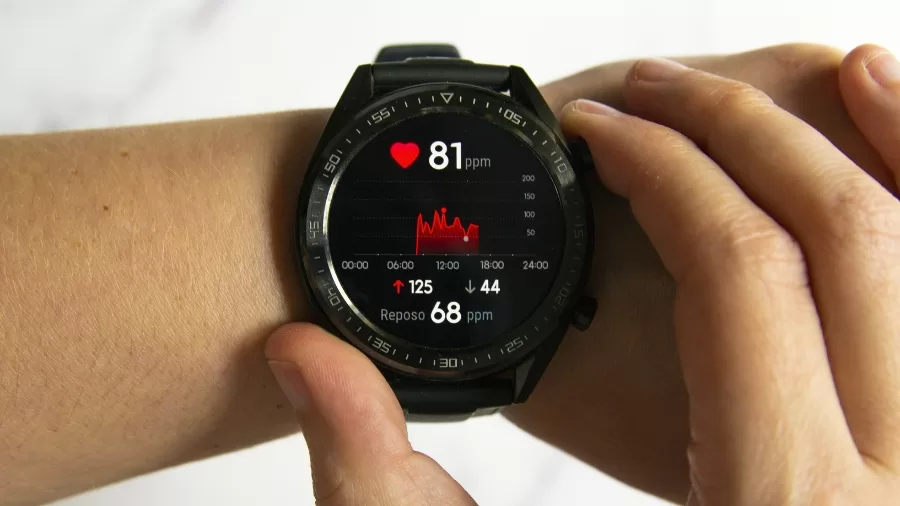Health
Why Healthcare Professionals Are Skeptical of Wearables

- Doctors are cautious about wearables due to the risk of overwhelming users with potentially inaccurate health data.
- Concerns about the lack of regulation and standardisation raise doubts about the reliability and safety of wearable technologies.
- While wearables offer potential benefits, doctors fear they may encourage self-diagnosis and lead to unnecessary medical treatments.
Wearables like smartwatches, fitness trackers, and health monitoring devices have gained significant popularity in the IT industry. These devices promise to revolutionise personal health management by offering real-time insights on various metrics, including heart rate and sleep patterns. Despite their potential, many experts express concerns about the widespread use of wearables in the health and wellness sector.
Data Overload
A key concern among healthcare professionals is the vast amount of data generated by wearables. While these devices track numerous health metrics, not all of the information they collect is useful or accurate. For example, while tracking steps or calories burned can be helpful to fitness-focused individuals, more complex metrics like heart rate variability or blood oxygen levels require professional interpretation.
Take, for instance, a smartwatch notifying a user of an elevated heart rate—it cannot distinguish between a harmless increase due to physical activity and a potentially dangerous condition like arrhythmia. This overload of information can lead to unnecessary anxiety or false alarms, overwhelming both the user and their healthcare provider.
Accuracy and Reliability Concerns
A significant issue with wearable devices is the accuracy of the data they provide. While many wearables are equipped with advanced sensors, their reliability can be questionable in certain situations. For instance, fitness trackers might inaccurately estimate the number of steps taken, or smartwatches could capture heart rate data incorrectly due to factors like skin tone, device placement, or movement interference.
These inaccuracies can lead to misguided decisions, especially for individuals using wearables to monitor critical conditions such as diabetes or cardiovascular disease. In medical practice, precise measurements are essential, and doctors worry that relying on faulty data could result in harmful health decisions. For example, someone who assumes their blood pressure being under control based on wearable readings might delay seeking necessary medical attention, risking their health.
Lack of Regulation and Standardisation
Unlike medical devices such as pacemakers or glucose monitors, wearables are not subject to the same strict regulatory standards. While some health-related gadgets, such as fitness trackers, may be subject to loose regulation, they fail to meet the rigorous requirements imposed on medical equipment. This lack of oversight raises concerns about the reliability and consistency of the data these devices provide.
Doctors worry that without standardised regulations, wearables could mislead patients or foster a false sense of security. There is a risk that individuals may rely on these devices for self-diagnosis, potentially overlooking professional medical advice and ignoring a more comprehensive view of their health.
Potential for Self-Diagnosis and Unnecessary Interventions
The rise of health apps and wearables has empowered many individuals to take charge of their health, a development that comes with both benefits and risks. Many users turn to these devices for medical advice, which can lead to self-diagnosis and potentially unnecessary interventions.
For instance, wearable ECG devices that monitor heart rhythms may flag irregularities and prompt users to seek medical help. While this feature can be helpful, there are concerns that it could cause overdiagnosis, leading individuals to pursue unnecessary tests and treatments. This not only increases medical costs but also causes undue stress and emotional strain for patients, even if the issue is minor.
The Effect on the Doctor-Patient Relationship
The growing use of wearables is starting to reshape the dynamic between doctors and patients. While these devices can offer patients valuable health data, there are concerns that they may erode trust in medical professionals. Patients might begin to prioritize data from their wearables over the expert advice of their healthcare providers.
This shift could lead to communication breakdowns, with patients believing they have a better understanding of their health than their doctors. In some cases, this might even lead to disputes over medical recommendations. For doctors, managing the flood of data from wearables while preserving patient trust and ensuring the information is clinically relevant can be a complex challenge.
The Future of Wearables in Healthcare
Despite the concerns raised, doctors acknowledge the potential benefits of wearable technologies. Many recognize their ability to promote healthy lifestyles, track chronic conditions, and provide valuable data to inform medical decisions. Some specialists even view wearables as effective tools for preventive care, aiding in the early detection of diseases before they escalate.
However, for wearables to be trusted in healthcare, they must become more standardised, regulated, and seamlessly integrated into existing medical systems. Doctors need assurance that the data is both valid and actionable, while patients need clear guidance on how to interpret and act on the information provided by their devices.
In conclusion, while wearables hold enormous promise, clinicians remain cautious due to concerns about data overload, accuracy, and the risk of self-diagnosis. As technology evolves, doctors are likely to embrace these devices more widely—if there is increased transparency, regulation, and education around their use. The ultimate goal is to ensure that wearables complement, rather than replace, professional medical care, leading to a more informed and healthier population.



















































